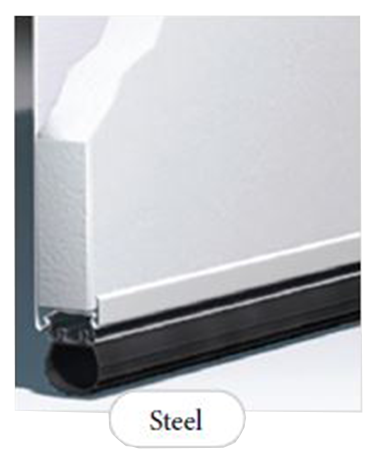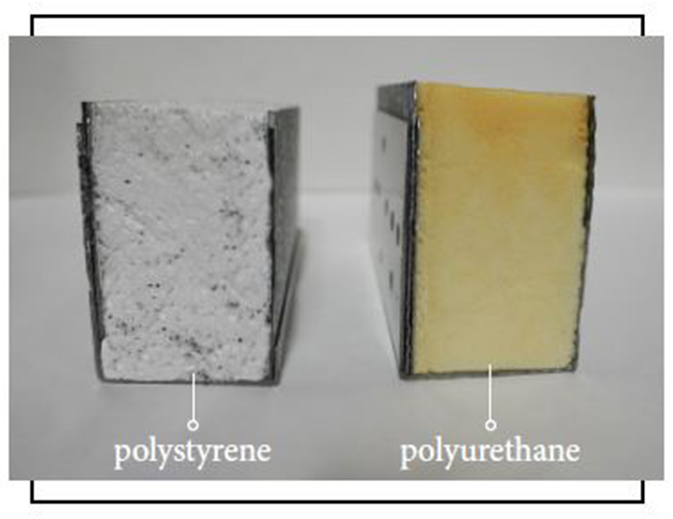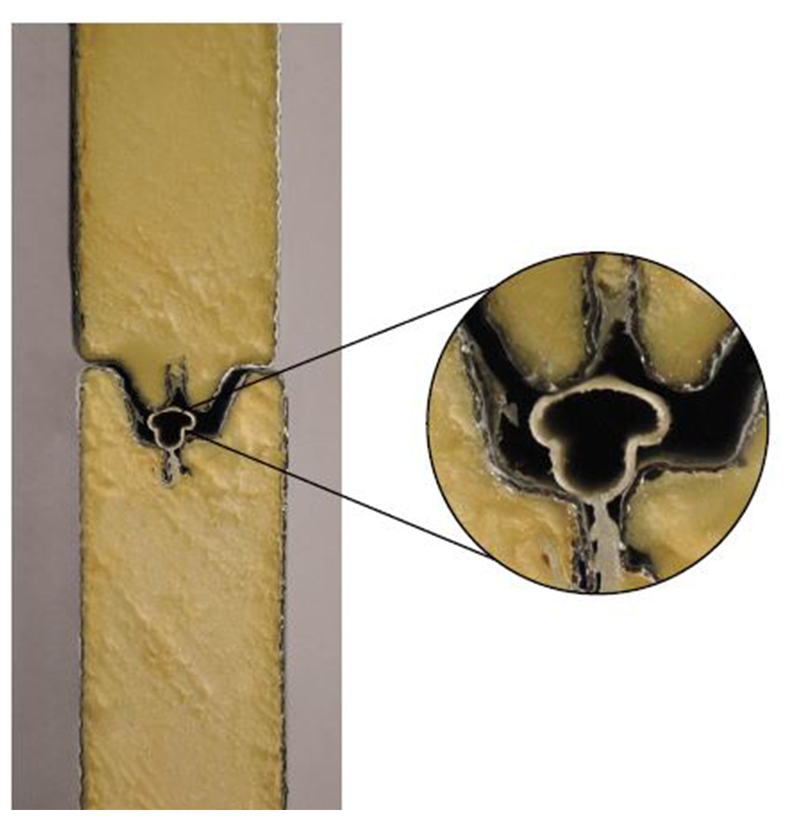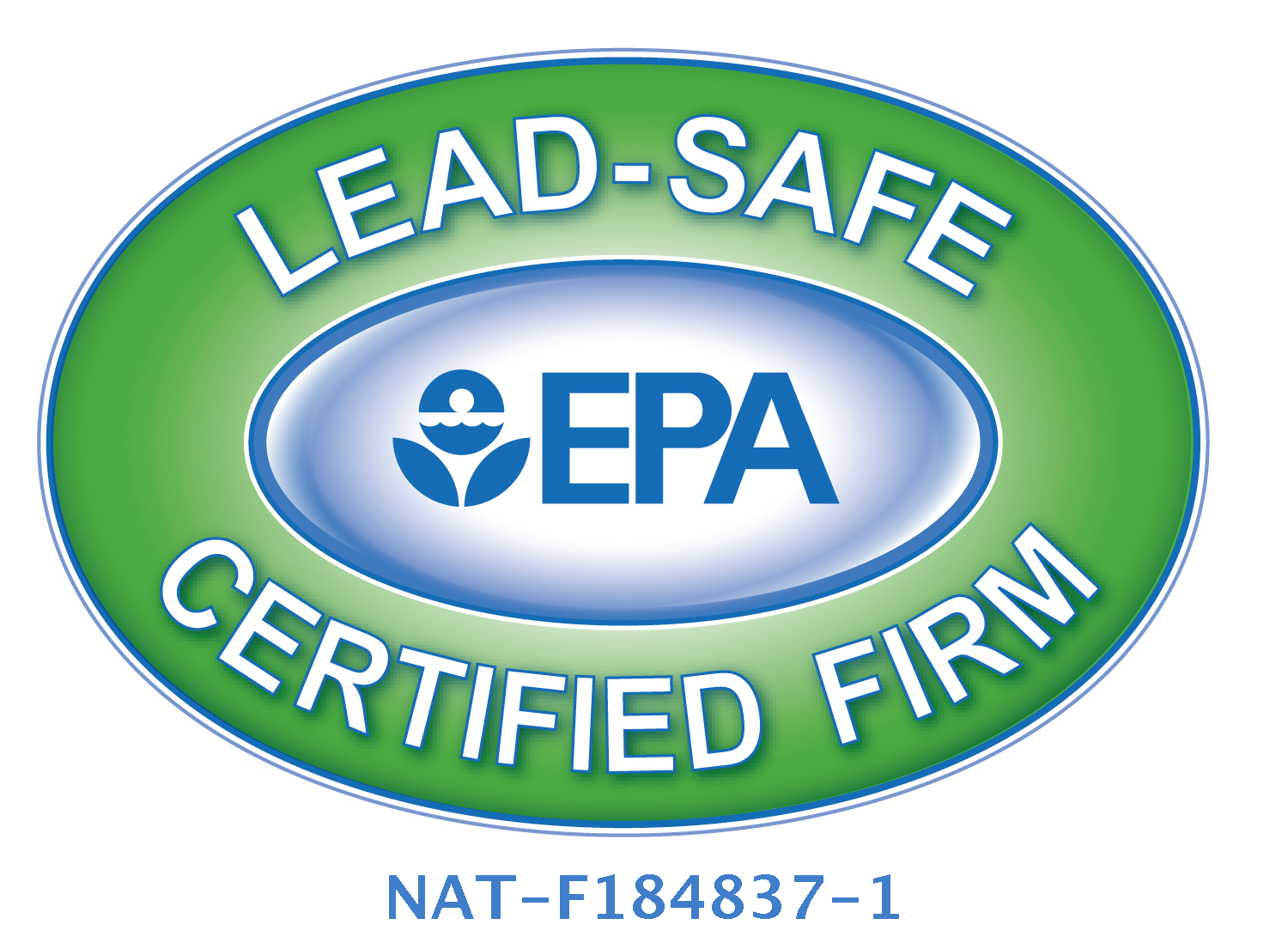Buyer's Guide Construction





WITH 2,887 REVIEWS
Click Here To Book Online Now





CLICK
To view local phone numbers

You know what they say: it’s what’s on the inside that counts. And that applies to garage doors too! A well-constructed garage door can help with security, insulation, and more.
When it comes to garage door construction, there are 1-, 2-, and 3-layer doors. Each layer of construction adds stability and durability to your door.

1 layer construction is uninsulated and consists of a single sheet of steel. This is best used in detached garages when you are not storing valuable items inside or concerned about climate control in your space.

2-layer construction consists of a steel front and a layer of polystyrene insulation backed by a thin layer of vinyl. This is best used in fairly inactive driveways as the door can become dented.

3 layer construction is a complete sandwich: one layer of material, a layer of insulation (polystyrene or polyurethane), and a backing layer that matches the front material. This is the most durable construction, offers the most insulation and heat loss protection, and is the only construction used by all* material types.
*Due to the construction of Full Glass doors being nearly all glass, there is no insulation with this material.
Insulation
Insulation isn’t just about keeping your garage warm or cool.
It is also an important factor in the durability and security of your door.
Types of Insulation
There are two different types of insulation used in garage doors: polystyrene and polyurethane. Polystyrene is the same material used for a foam cooler and is cut to size and then placed within a garage door panel. If it is part of a 2 layer steel door, it will have an additional vinyl backing to make it easier to clean–but is susceptible to damage from inside the garage. It adds rigidity to the door and typically has an R-value between R6–R10.
Polyurethane is a spray injected, expanding foam insulation. As it is sprayed in the door from both sides, it expands to fill every nook and cranny inside the door which adds rigidity. Polyurethane has an R-value of R12–R19, on average.

R-value
R-value is the measure of resistance to heat flow through a material. Insulation is meant to stop the movement and transfer of heat, however, heat can enter and leave your home in two ways: conduction, which R-value measures, and air infiltration, which it does not.

- Conduction is the transfer of heat through a surface by direct contact. For garage doors, conduction is eliminated through thermal breaks. Most often used in 3 layer steel doors with polyurethane insulation, thermal breaks help eliminate the transfer of heat by breaking the continuity of the steel between the front and back of the door.
A small strip of rubber, like in the image to the left, is placed between the steel on the front of the door and the steel on the back of the door. This makes it so that the front and back no longer touch and the heat/cold can't transfer between the two sides.
Air Infiltration - If your garage door is not properly sealed around your door frame, air infiltration can result in heat loss and ultimately eliminate the R-value of your garage door.

- Weather seal is the vinyl flap that is placed around the outside frame of a garage door. It helps to stop the air infiltration around the opening of the garage door. This strip should be both nailed and then back caulked to ensure air does not penetrate the door opening. Previously, strips of wood were placed around the edge of the opening to keep air and pests out. So if you currently have just a wood strip, you’ll find that the addition of new weather stripping with a vinyl flap will greatly reduce air flow.
- Bottom rubber is applied to the bottom of a garage door to stop air, dirt, bugs, and pests from entering the garage. The bottom rubber is not designed to keep water out of your garage. This issue needs to be addressed through grade issues on your driveway.
More Than a Garage Door
While R-value is an important factor when it comes to your garage door’s insulation, it shouldn’t be the only determining factor in the door you choose. You need to consider your garage as a whole. The windows, walls, floor, ceiling, the garage door and even the company installing the garage door all work together to impact your garage door’s insulation.
Insulation of Your Garage
You should match the R-value of your garage door to your garage. Most homes in the Northeast are constructed using 2x4 construction, sheetrock, and fiberglass insulation, which would put the R-value of your walls at about an R10–R12, and you should try to match that in your garage door. If your garage is constructed of concrete blocks, your garage is considered uninsulated. Choosing a door with a higher or lower R-value than your garage currently has will have a limited effect in stopping heat transfer (but you will still want to consider an insulated door for security and durability purposes).
Quality of the Installation
The installation of your garage door can affect the overall efficiency of your garage door. If your door has air gaps, faulty bottom rubber, and isn’t properly weathersealed, you can experience heat loss. You should talk to your garage door company about their installation standards around weather sealing, track selection and how they ensure your installation is completed to your satisfaction.
How Construction Affects...
Security
A vulnerability of a single layer garage door is that it can be kicked and knocked off the track, allowing thieves to enter your garage. A door constructed with insulation is ultimately stronger and more secure than a single layer garage door. It helps keep the door firm and solid which can keep your home more safe.
Noise
A door with insulation is more rigid, preventing the door from rattling as it moves up and down the track. A properly installed 3-layer garage door will be virtually silent in its function. Additionally, a garage door with insulation can help block out the noise from outside your home and add another layer of sound barrier.
Durability
When considering garage door durability, the 3-layer sandwich style door offers the most resistance to dents, noise, and rattling. Insulation gives the door added rigidity, but depending on how busy your driveway is with kids running around and playing games, you’ll want to opt for the polyurethane insulation. Because it’s a spray foam insulation, it fills in all the nooks and crannies.
You’ll also need to consider the material you choose if you’re intent on having a durable garage door. Vinyl is the most durable garage door material, but is limited in designs. If you’re interested in customization and durability, you should opt for vinyl composite or wood composite materials. It’s also important to note that small knicks and scratches in vinyl or vinyl composite won’t be as apparent because it’s the same color underneath.
3-layer garage doors are also less resistant to cracking. 1-layer and 2-layer garage doors have been known to crack at the top of the door from the pull of the motor.
...Did You Know?
In areas that get snow, you’ll want to be knowledgeable about the garage door material you’re choosing and how the elements can affect your door. In the Northeast where we get a lot of snow, the salt that is used to melt the snow can cause damage to steel or wood garage doors. As the salt mixes with the melting snow, it rots and rusts the materials.
Have a question? Give us a call!
...Stay tuned for next week's "Garage Doors in Plain English"
Providing the information and resources you need to find the perfect garage door for your home and budget.
Garage Door Designer
Design your new garage door in 10 minutes and send for a free quote!
Providing the information and resources you need to find the perfect garage door for your home and budget.
Office: (850) 312-0888
250 Industrial Park Road
Unit 301
Destin, FL 32541
Licenses
Escambia County License #- DWS0095
Santa Rosa County License #
- WDS200761850590
Okaloosa County License #
- 30906-EA
Walton County License #
- 15-00004181
Bay County License #
- BC005038












